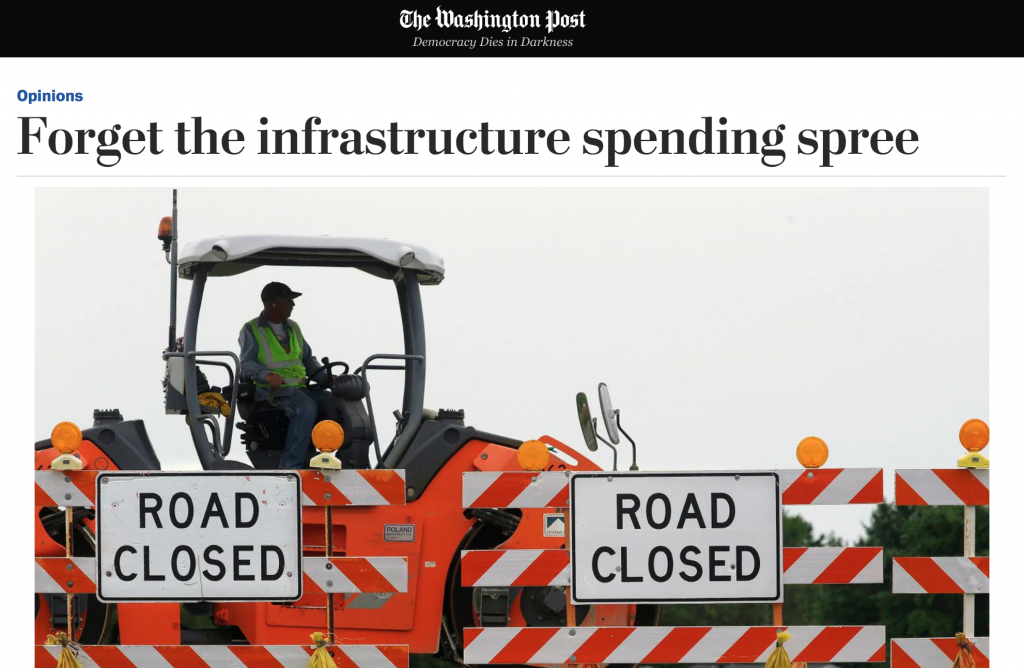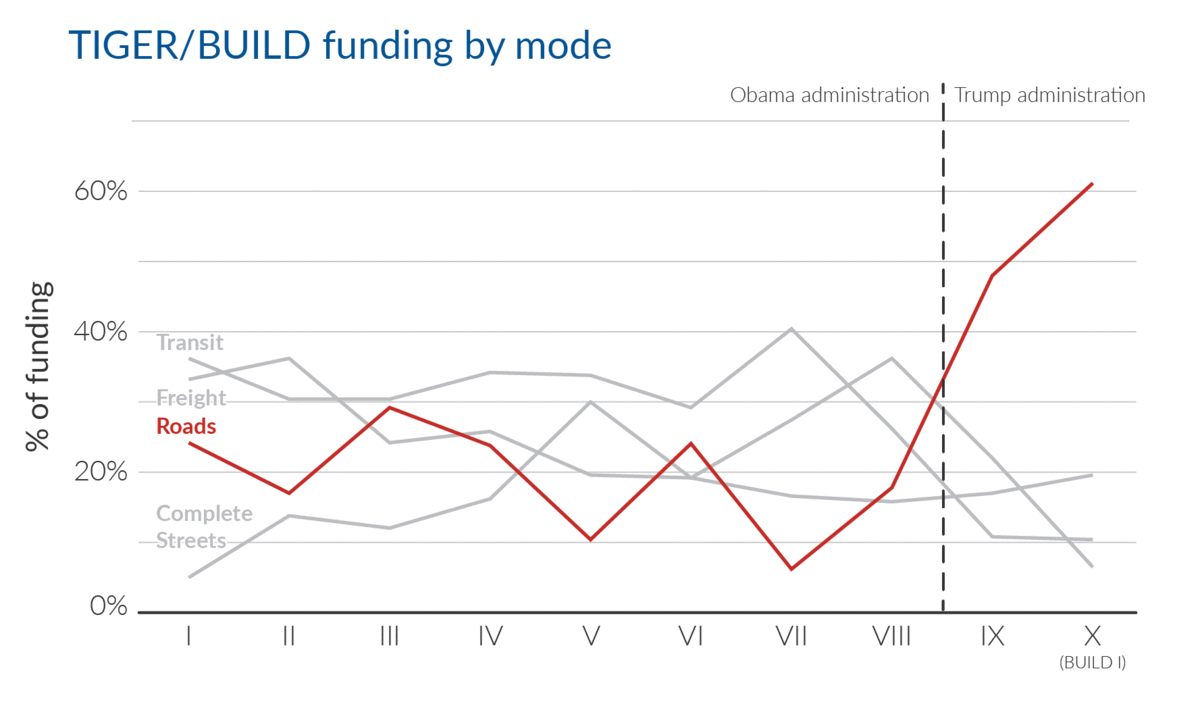Community Connectors grant program | Applications Closed
Our new Community Connectors grant program will help advance locally driven projects that will reconnect communities separated or harmed by transportation infrastructure and tap available federal and state funds to support them.




 Under President Trump, the USDOT has effectively turned the formerly innovative BUILD program—created to advance complex, hard-to-fund, multimodal projects—into little more than a rural roads program, dramatically undercutting both its intent and utility. A new analysis illuminates how the program has changed and what Congress can do about it.
Under President Trump, the USDOT has effectively turned the formerly innovative BUILD program—created to advance complex, hard-to-fund, multimodal projects—into little more than a rural roads program, dramatically undercutting both its intent and utility. A new analysis illuminates how the program has changed and what Congress can do about it.
